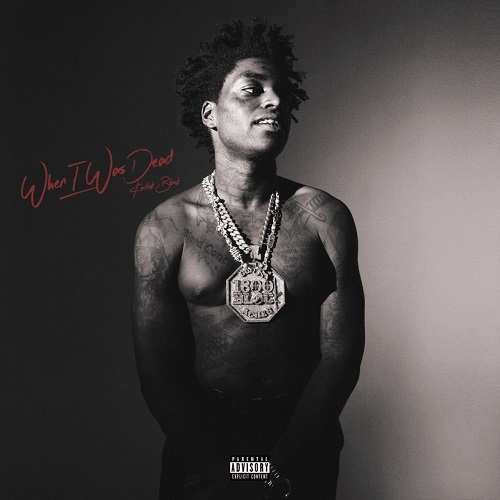It's been ten years now since Kodak Black first entered into our lives. Ten years over which he had ups and downs, artistically as well as personally speaking. Ten years during which, each time we thought we were done with him, the Floridian stroke back with brilliance, reminding us about what he was worth. Last year, for example, a few months only after he released the bland Pistolz & Pearlz, he went back with another great record he titled When I Was Dead.

Like announced by the cover art – a black and white picture of him posing naked – and like expected judging by the scarce guestlists – only a few friends from the Sniper Gang show up – this shows Kodak Black in his purest expression.
This is modern blues music. These are lyrics about a damaged life that looks like a death. This is a manifesto about the rapper's vulnerability, discomfort, emotions, and qualms. He confesses about his social maladjustments ("Close To Me"), his loneliness ("Fuck You Too"), his desperate thirst for love ("Right On Time" and "Facetime Hiding"), his addiction to drugs ("2'CY"), his disability to find rest ("Master Peace"), his incapacity to detach himself from his character ("I’m Kodak"), or from the projects he is from ("Hard Life"). Kodak Black has money now, but this makes things even more distant, according to "Scared Of My Money".
The rapper talks about death, that lurks round the corner. And that death gets tangible when his friend WizDaWizard, who was murdered in 2021, features on "Extra Clips".
When I Was Dead is a long catharsis, where gangsta rap routines actually talk about mental distress, even though Kodak Black's harshness prevents him from exposing easily his sentimental confusion. Like he says on the opening – and Metro Boomin produced – track, "Kylie Grande":
I don't cry, love
I'm just barkin' at the moon
Such lyrics are magnified by Kodak Black's performance, through raps that derail into fragile melodies, paradoxical braggadocios declaimed in a bleak way, strangled words hummed with a lump in his throat. In addition, the music is scarce, sober, and stingy. These are just a few hazy beats, sad piano sounds, and the mechanical drums of trap music.
Even the hit single, "Lemme See", is minimalistic. This is an incredibly catchy tune, considering how bare it is, musically speaking. Kodak Black is equally eloquent on the intense guitar of "Came Thru Flushin’", when he talks about his dilemma, and the irremediable tragedy that fuels his art: whatever his talent or success, this son of Haitian immigrants came through the toilets, and he will never leave the gutter.
